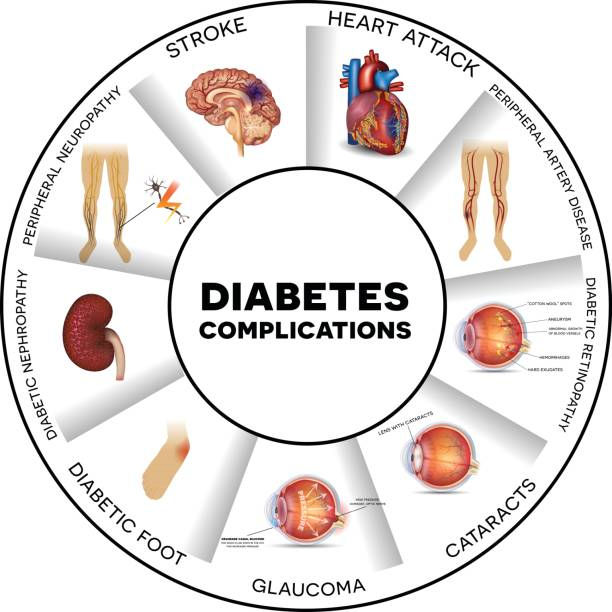Lifestyle Changes That Can Reduce Stroke Risk for Diabetics
- LifeTree World
- Sep 23, 2024
- 3 min read
Diabetes is a significant risk factor for stroke, as individuals with this condition face heightened susceptibility due to various complications that affect the cardiovascular system. According to health experts, the connection between diabetes and stroke is largely attributed to factors such as high blood pressure, atherosclerosis, and heart disease. However, adopting specific lifestyle changes can substantially lower the risk of stroke for those living with diabetes. This article will delve into effective strategies, with a particular focus on integrating Ayurvedic diabetes medicines for holistic management.
Understanding the Diabetes-Stroke Connection
Diabetes contributes to stroke risk through several mechanisms:
High Blood Pressure: Diabetes often coexists with hypertension, which is a critical risk factor for stroke.
Atherosclerosis: The presence of excess glucose can lead to arterial plaque buildup, narrowing blood vessels and impeding blood flow.
Inflammation: Chronic inflammation linked to diabetes can damage blood vessels over time.
By addressing these factors through lifestyle changes, diabetics can significantly reduce their risk of stroke.
Key Lifestyle Changes
1. Embrace a Healthy Diet
Diet plays a crucial role in managing diabetes and stroke risk. Key dietary recommendations include:
Whole Foods Focus: Incorporate a variety of fruits, vegetables, whole grains, and lean proteins. These foods can help stabilize blood sugar levels and provide essential nutrients.
Limit Processed Foods: Reduce intake of processed snacks and sugary beverages, which can spike blood sugar and contribute to weight gain.
Ayurvedic Principles: Consider integrating Ayurvedic diabetes medicines, which often emphasize natural ingredients and holistic approaches to balance blood sugar levels. Ingredients like bitter melon, fenugreek, and turmeric can be beneficial.
2. Stay Physically Active
Regular exercise is vital for managing diabetes and reducing stroke risk:
Aerobic Activity: Aim for at least 150 minutes of moderate aerobic exercise weekly, such as walking, cycling, or swimming.
Strength Training: Incorporate resistance exercises two to three times per week to improve insulin sensitivity and overall health.
3. Maintain a Healthy Weight
Managing weight is essential for diabetics to lower their risk of complications:
Set Realistic Goals: Aiming for a modest weight loss of 5-10% of your body weight can improve blood sugar control and reduce stroke risk.
Mindful Eating: Practice portion control and mindful eating to avoid overeating and to make healthier food choices.
4. Control Blood Pressure and Cholesterol
High blood pressure and cholesterol levels can increase the risk of stroke:
Regular Monitoring: Regularly check blood pressure and cholesterol levels. Consult healthcare providers to understand your target levels.
Medication Adherence: If prescribed medications to manage these conditions, ensure adherence and discuss any concerns with your doctor.
5. Avoid Tobacco and Limit Alcohol
Both smoking and excessive alcohol intake can heighten stroke risk:
Quit Smoking: Seek support through counseling or smoking cessation programs to help you quit.
Moderate Alcohol Consumption: If you drink, limit intake to moderate levels—up to one drink per day for women and two for men.
6. Manage Stress Effectively
Chronic stress can adversely affect blood sugar levels and overall health:
Mindfulness and Relaxation Techniques: Incorporate practices such as yoga, meditation, or deep breathing exercises to reduce stress.
Engage in Hobbies: Dedicate time to activities that bring you joy, which can serve as a form of stress relief.
7. Prioritize Regular Check-Ups
Regular health check-ups are vital for monitoring diabetes and its complications:
Annual Physicals: Schedule yearly visits to discuss diabetes management, stroke risk, and overall health with your healthcare provider.
Stay Informed: Educate yourself about stroke symptoms and manage diabetes proactively.
Conclusion
Implementing these lifestyle changes can greatly reduce stroke risk for diabetics while improving overall health. A holistic approach, incorporating a healthy diet, regular physical activity, weight management, and stress reduction, is essential.
Furthermore, exploring Ayurvedic diabetes medicines can offer additional benefits by utilizing natural remedies to help maintain blood sugar levels and enhance well-being.
At Life Tree World, we are committed to supporting individuals in their health journeys. We provide resources, education, and community support to help you make informed decisions about your lifestyle and health. Together, we can work towards a healthier future, minimizing the risk of stroke and enhancing quality of life for those living with diabetes.













Comments